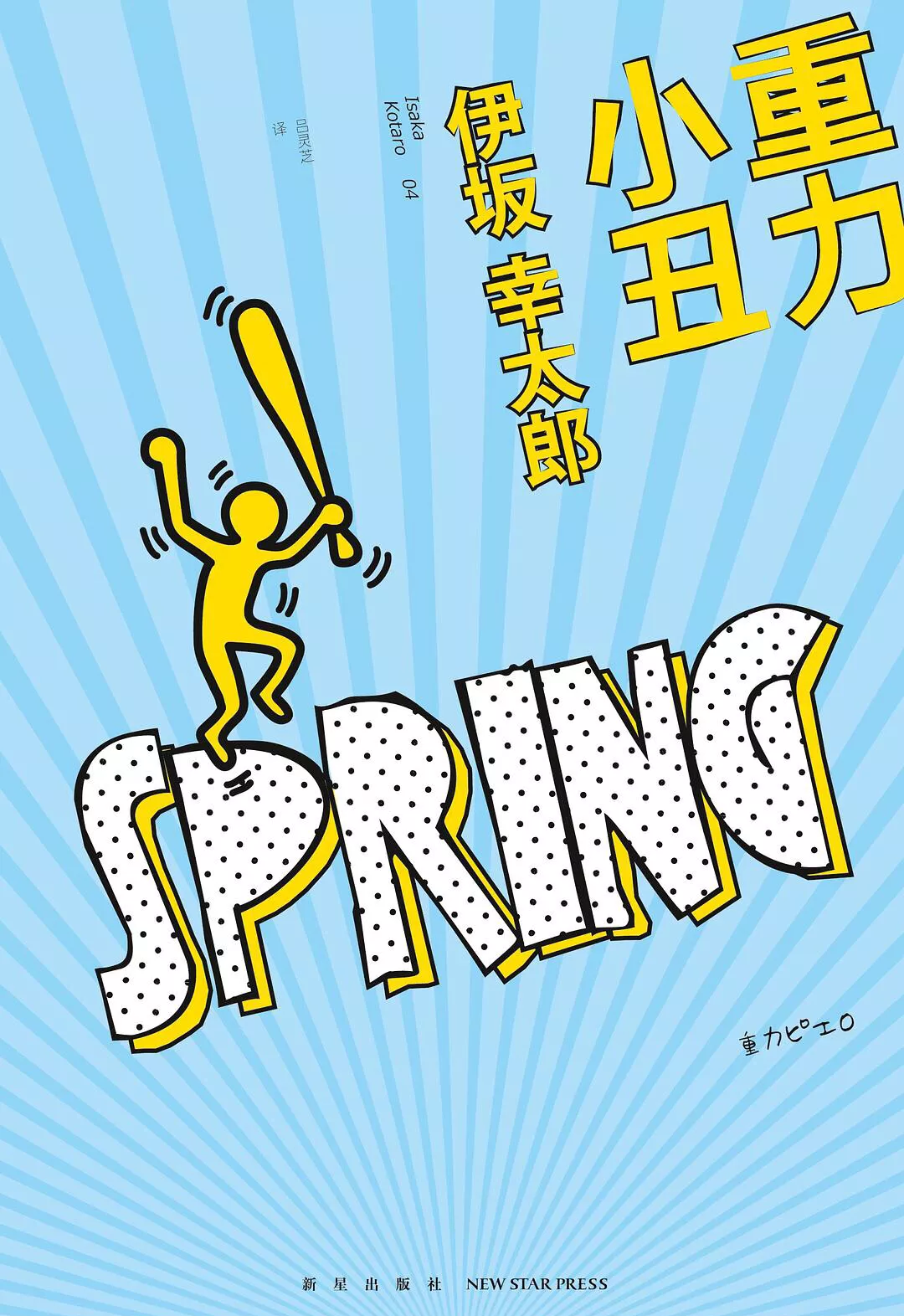By chance, a book friend recommended my novel Gravity Clown by Kotaro Isaka.

The more familiar speculative novelist in China is Keigo Higashino. But in fact, Kotaro Isaka is no less popular in Japan than Keigo Higashino.
First, let's introduce the author, Kotaro Isaka. He graduated from northeastern university law school, so after reading his basic novels, I found that his novels not only deal with crimes, but also have a lot of discussions about the original family, social issues, and judicial justice. That's what drew me to the book.
At the beginning of the story, clues in the clouds and fog are given, but although there are thousands of clues, Kotaro Isaka is always able to pinch them together with a rich and unexpected imagination. Personally, I feel that the book "Gravity Clown" is more similar to Keigo Higashino's "Relief Grocery Store". Although the story involves criminal content, his expression does not make me feel the depressiveness of novels like "White Night", but will occasionally appear some inspiring words.
Let's talk about this book. Because it is a novel, I will not reveal much detail, just to share a few points:
1. Why is the book called Gravity Clown?
There are two sentences in the book. One sentence is "The clown swings in the air, and everyone forgets the existence of gravity." Happy survival is free from the gravity of the earth. Another sentence is that "the more profound things are, the more energetic they must be conveyed, like carrying heavy objects but dancing tap dances lightly." ”
Whether it is the rape of the mother, the difficult growth of the spring, or the father finally suffering from cancer... Even though life is full of too many unexpected misfortunes, their family is calm and optimistic to face, understand and support each other, and keep the prejudices of the world out of the house.
2. The novel unfolds in the first person, and the protagonist is named Izumi, who is Haru's half-brother. With the continuous occurrence of arson cases in the city, the reader embarks on a journey to explore the truth, so reading this book will have the feeling of peeling the onion.
At first, it was thought to be a book about finding an arsonist or denouncing a rapist, but at its core was a sincere human emotion. For example, the father did not look at his mother differently because he was raped by a perverted high school student, the whole family did not reject Haru because he was the son of a rapist, and even if Haru later committed an unforgivable crime, the family chose to understand and support him. This is the power of love.
3. This story explores three main issues:
The first is the relationship between genes and the environment in which they grow up. For example, does the son of a rapist also become a perpetrator because he has the genes of a rapist? Is discrimination against the perpetrator's family right? If not, how can people's prejudices be weakened?
The second is the relationship between the facts of the crime and the legal sanctions. Both Japan and my country have room for the punishment of juvenile offenders. For example, a minor girl who attracted attention some time ago killed her classmates, but because according to the provisions of the criminal law, if the criminal suspect was under the age of 14 at the time of the crime, he was not investigated for legal responsibility according to law, and she was not allowed to get the punishment she deserved. Those minors have clearly committed crimes, but because of the provisions of the law, there is no way to be punished accordingly. Is such a sentence fair to the victims and their families? Will it lead to adverse social impacts? Will the victim's side be retaliated against? There is a series of questions that are worth pondering.
The third is the relationship between the cost of the perpetrator and the harm suffered by the victim. The perpetrators in the book are still happy after committing crimes, and there doesn't seem to be enough reflection. On the other hand, the suffering endured by the victims is enormous and incalculable. And how should such pain be soothed? The author gives his own answer in the book.
This book makes me feel very personal that Isaka Kotaro has set up many puzzles in the book because of his profound knowledge, knowledge of the past and the present, and pay more attention to detail, so he has set up many puzzles in the book, and it can be said that he especially likes to play word games. Although it may be a little "distorted" and difficult to understand after the novel is translated into Chinese version, it does not prevent everyone from feeling the author's qingqi brain hole and the warmth conveyed between the lines when reading.
In fact, recently because of many troubles haunting, I can't help but be anxious, scared, and confused. This book makes me feel that there are many things that are insoluble in the present, so do your best, accept the worst results, all the bad results must be seen, and try to tolerate it with love!
Finally, I would like to give you two golden sentences that the author said through the protagonist's father:
The so-called life is like a big river, no matter what you do, you can only go down the river.
Stability is unstable, anyway can not escape the fact of being in turbulence, just some trivial details, the final direction will basically not change anything, so just casual.